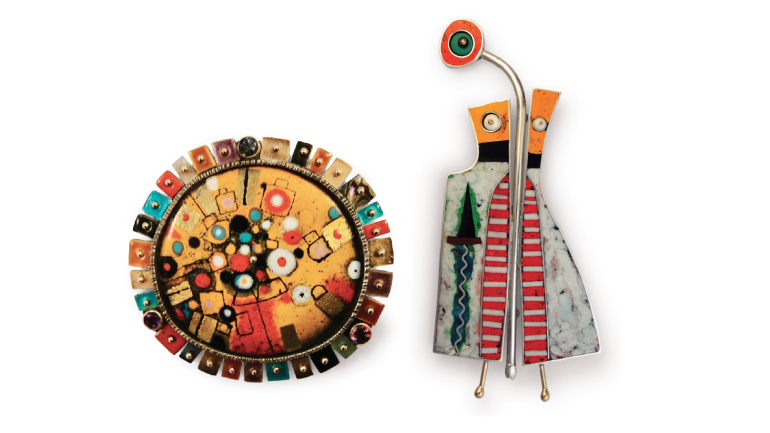Blood, Sweat, and Kids
Blood, Sweat, and Kids
For those of us who are parents as well as perfectionists, life can be frustrating. Being a parent is like being a blanket that’s always too small, Fredrik Backman writes in his novel Beartown; there’s no way to cover everything you’d like to, no way to really triumph. Despite your best intentions, you will fail your child, leaving little wounds and missing big opportunities. You’ll inadvertently do damage your kid will have to repair as they grow up.
I thought about this as we put together this issue about generations and families. Looking back, I regret not taking my 18-year-old to more museum exhibitions and gallery shows. I didn’t find enough time to collaborate on creative projects. I didn’t hunt down figure drawing classes. I meant well, but I didn’t make it happen.
Tod Pardon’s father, the acclaimed jewelry maker Earl Pardon, undoubtedly meant well, too, when he greeted Tod’s adolescent work with raised eyebrows and pulled out books on the masters to show him how he could do better. No doubt he thought he was helping, instructing, giving his son the benefit of his experience. Instead, the younger Pardon felt slighted, like he could never measure up to his dad’s high standards; he envied his father’s students at Skidmore College, who somehow won Earl’s encouragement, humor, and affection.
Hank Willis Thomas felt pushed by his mother into art and history. When he was young, he says, “she was more forcing me to do it, and by the time I realized I was being played, so to speak, I was already following in her footsteps.”
If you’re a parent, you know the job involves an endless succession of gray areas and tough decisions. When do you insist your child immerse themselves in culture, and when do you leave them to their own impulses, biting your tongue if you need to? It’s hard to know in the moment if you’re doing the right thing, not least because each child is different, with different needs. Every parent is winging it. The best ones pray they’re doing more good than harm.
Still, as I edited this issue, I confirmed that many accomplished artists ascribe their successes to their parents and families. Tod Pardon learned a lot from Earl, even if the lessons weren’t always what his father intended. For one thing, he learned to be a different kind of father to his own artistic son – more collaborative, more open-minded. Hank Willis Thomas credits his historian mother for the insights about race and media culture that inform his work today. Because of her, “I developed a great appreciation for alternative histories,” he says.
If you come from an artistic background, all of this comes into perspective when you lose a parent. You lose that creative kinship; you lose an important artistic touchstone. And yet, sometimes a parent really does live on through a child. Five years ago, Judy Smilow relaunched a line of furniture and lighting created by her father, the late midcentury designer Mel Smilow. Perhaps the most gratifying part of the line’s success has been emotional. “Making the furniture has felt like being with my dad again,” she says. “It’s been a total thrill to have him in my life.”
Parents and children disappoint each other all the time. But if your heart’s in the right place, magic happens anyway.

